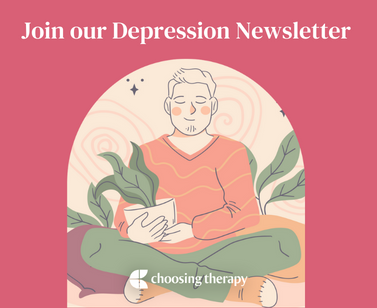In rare occurrences, trazodone may cause weight gain in some individuals. However, it’s not as common as with other antidepressants. Its impact on weight varies from person to person, influenced by factors like dosage, lifestyle, and individual metabolism. Regular exercise and a balanced diet can help manage potential weight changes while taking trazodone. Consulting your healthcare provider if concerned about weight fluctuations is advisable.
What Is Trazodone & How Is It Used?
Trazodone belongs to a unique class of medications called serotonin antagonist and reuptake inhibitors (SARI) but is similar to other SSRI medications. It primarily works by altering serotonin levels in the brain. This drug is commonly prescribed to treat major depressive disorder. It’s also used off-label to manage insomnia and anxiety-related conditions due to its sedative effects. Approved for use in adults, trazodone is rarely prescribed off-label for children and adolescents in certain cases, although caution is advised due to limited studies on its effects in younger populations.1
Would you like to be evaluated for depression? Virtual psychiatry for depression. Talkiatry offers personalized care with medication and additional support. They take insurance, too. Get started with our short assessment.
Does Trazodone Cause Weight Gain?
Weight gain while taking trazodone is uncommon but can occur gradually over time in some individuals. It’s not as common as with other antidepressants, but some individuals may experience weight changes while on this medication. Factors like dosage, individual metabolism, lifestyle changes, and changes to serotonin levels can contribute to these fluctuations in weight.1
Research shows that around 5% of patients taking trazodone experience weight gain, and 6% experience weight loss.1
Weight gain on trazodone may be due to several reasons:*1
- Changes to serotonin: Trazodone’s impact on serotonin levels may affect appetite and cravings for food, potentially leading to weight gain in patients.
- Sedative effect: The sedative effect of trazodone may affect sleep patterns and quality, which can rarely affect metabolism, contributing to weight changes over time.
- Changes in mood: As someone’s depression may improve, individuals may find themselves having more of an appetite, resulting in weight gain.
*All medications, including trazodone, can cause side effects which can be mild or serious. This is not a comprehensive list of all possible side effects. You should talk with your doctor about any questions you have and to understand the potential side effects and benefits of any medication.
Does Taking Trazodone Make it Hard to Lose Weight?
In general, the addition of trazodone to someone’s regimen should not make losing weight more difficult. When compared to other classes of antidepressants, trazodone is considered much less likely to contribute to weight gain. TCAs and some SSRIs are more strongly associated with weight gain. However, individual responses to medications can vary significantly.2
How Much Weight Could I Gain With Trazodone?
Weight gain (or loss) with trazodone varies widely among individuals. Research suggests that the average weight gain attributed to trazodone ranges from negligible to moderate. One study indicated an average gain of around 1.2 pounds over the course of treatment, while others reported minimal weight changes.3 However, there’s considerable variability among individuals, with some experiencing no weight change at all.
It’s important to note that this amount of weight gained is less than most comparable antidepressant medications, with the exception of medications like bupropion, which are more likely to cause weight loss.
Popular Choices For Online Psychiatry Talkiatry – Safe, virtual mental health care from doctors who take insurance. Most psychiatry visits cost patients $30 or less* Take a Short Assessment Hims / Hers – Connect with a healthcare provider in 12 to 48 hours.** Free Assessment *Includes copayment, deductible, coinsurance, and $0 Visits. Excludes no shows. **On average. Actual appointment times vary by state and individual patient.
How to Avoid Weight Gain on Trazodone
To avoid weight gain while taking trazodone, incorporating various lifestyle strategies is key. Regular exercise, eating healthy, working to manage depression, and maintaining a consistent sleep schedule not only help manage weight but also offer mental health benefits. Monitoring your medication regimen and having regular appointments with your provider can also help determine what methods may be best for your individual case.
Here are 6 ways to avoid weight gain while taking trazodone:
- Exercise regularly: Engaging in consistent physical activity not only helps manage weight but also has proven mental health benefits, potentially counteracting any medication-related changes in appetite or metabolism.
- Talk to your prescriber about your dosage: Your healthcare provider can evaluate if your current trazodone dosage contributes to weight changes. Adjustments should only be made under medical guidance.
- Consider dietary habits: Opt for a balanced diet rich in fruits, vegetables, and lean proteins. Being mindful of portion sizes can help control calorie intake.
- Monitor weight regularly: Regularly tracking your weight can alert you to any changes, enabling early intervention if needed.
- Explore other medications: If weight gain becomes a concern, discuss alternative medication options with your healthcare provider.
- Maintain a consistent sleep schedule: Trazodone’s sedative effects can impact sleep, affecting metabolism. Establishing and sticking to a regular sleep routine can mitigate these effects.
Will I Lose Weight After Stopping Trazodone?
Weight changes after discontinuing trazodone can vary widely among individuals. Some may experience weight loss, while others might not see significant changes. Weight fluctuations could be influenced by factors like individual metabolism, lifestyle adjustments post-medication, and the reasons for originally starting trazodone. Discuss any anticipated changes or concerns regarding weight with a healthcare provider when considering discontinuation to better understand potential outcomes.
Are There Trazodone Alternatives That Don’t Cause Weight Gain?
Trazodone alternatives may be available depending on the condition being treated. When treating depression, alternative antidepressants may be considered but are noted to cause more weight gain traditionally. For some, bupropion may be an exception. In the case of insomnia and off-label conditions, other medications may be considered as well.
The chart below shows the relative risk of gaining weight while taking various alternatives to trazodone:2, 3, 4, 5
| Clozapine | Highest risk |
| Olanzapine (Zyprexa) | High risk |
| Paroxetine (Paxil) | High risk |
| Amitriptyline | High risk |
| Mirtazapine (Remeron) | High risk |
| Seroquel | Medium risk |
| Sertraline (Zoloft) | Medium risk |
| Fluoxetine (Prozac) | Low risk |
| Desvenlafaxine (Pristiq) | Low risk |
| Bupropion | Lowest risk (likely weight loss) |
Questions to Ask Your Healthcare Team About Trazodone Weight Gain
In my experience, trazodone is a fairly safe option, and any weight gain will likely be minor. When discussing with your doctor, there are important questions to ask in regard to any medication. These include questions about dosing, frequency, interactions, and more listed below.
Questions to ask your care team about trazodone weight gain include:
- How can I tell it’s the medication causing weight gain?
- How long will weight gain effects from trazodone last?
- Am I at risk for increased weight gain or weight gain if I am already taking other medications, such as antidepressants or anxiety medications?
- Will a previous history of weight gain make me more susceptible?
- What is the best dosage to reduce the risk of weight gain or weight gain?
- Are there drugs I am taking that could have increased effects on weight gain or weight gain?
- When should I reach out to you if I am experiencing too much weight gain or weight gain?
- Are there other medications that may have less impact on my weight?
- Are there specific dietary or exercise recommendations to counteract potential weight changes caused by trazodone?
- Should we consider regular monitoring or assessments for weight changes while on trazodone?
- What should I do if I miss a dose or accidentally take more than prescribed? Can this lead to trazodone overdose?
- How long does Trazodone take to work, making a noticeable improvement in my symptoms?
- Are there any foods, drinks, or other medications I should avoid while taking trazodone?
- Are there any lifestyle changes or complementary therapies that could enhance the effects of trazodone?
In My Experience
To help our readers take the next step in their mental health journey, Choosing Therapy has partnered with leaders in mental health and wellness. Choosing Therapy is compensated for marketing by the companies included below. Virtual Psychiatry Talkiatry – Get help from a real doctor that takes your insurance. Talkiatry offers medication management and online visits with expert psychiatrists. Take the online assessment and have your first appointment in days. Free Assessment Hims / Hers If you’re living with anxiety or depression, finding the right medication match may make all the difference. Connect with a licensed healthcare provider in just 12 – 48 hours. Explore FDA-approved treatment options and get free shipping, if prescribed. No insurance required. Get Started Free Prescription Discount Card Optum Perks Save up to 80% on most prescriptions. Optum Perks provides discounts at over 64,000 pharmacies nationwide. No memberships or costs to you, ever. It’s really that easy. Get your card and start saving. Get the discount card! Online Pharmacy HealthWarehouse Save 30 to 90% on generic prescription medication. With a fully in-house customer service department, help is just a call away. Visit HealthWarehouse Talk Therapy BetterHelp – Get support and guidance from a licensed therapist. BetterHelp has over 20,000 therapists who provide convenient and affordable online therapy. Complete a brief questionnaire and get matched with the right therapist for you. Get Started Anxiety Newsletter A free newsletter from Choosing Therapy for those impacted by anxiety. Get helpful tips and the latest information. Sign UpAdditional Resources
Online Anxiety Test A few questions from Talkiatry can help you understand your symptoms and give you a recommendation for what to do next. Best Online Psychiatry Services Online psychiatry, sometimes called telepsychiatry, platforms offer medication management by phone, video, or secure messaging for a variety of mental health conditions. In some cases, online psychiatry may be more affordable than seeing an in-person provider. Mental health treatment has expanded to include many online psychiatry and therapy services. With so many choices, it can feel overwhelming to find the one that is right for you.







